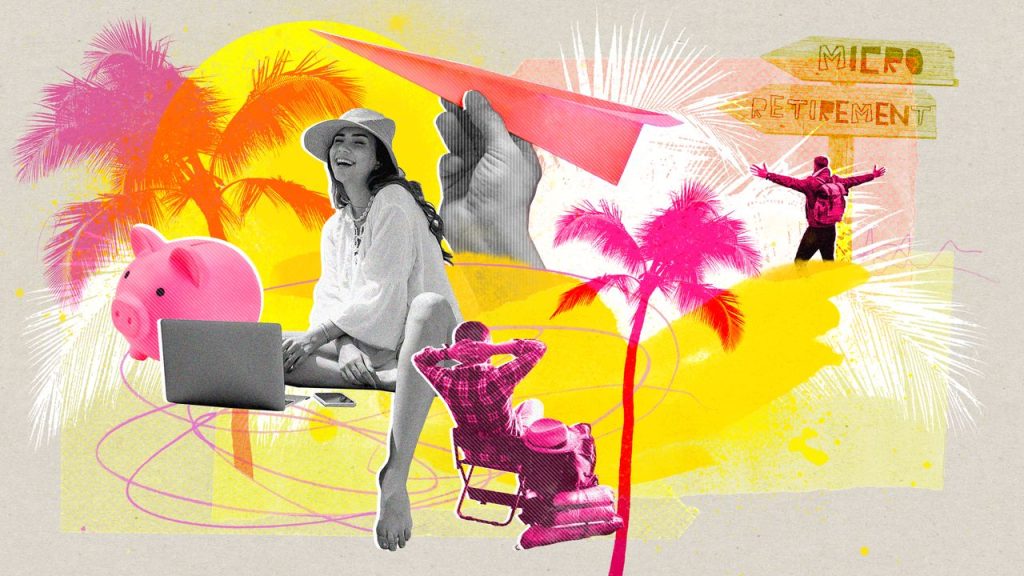Retirement — at least a form of it — may be possible sooner than you would expect, and could potentially happen many times in your professional career. As people achieve longer lifespans and thus spend more years working, many have opted to pursue “microretirement” or to take extended breaks from work without pay. This gives people a chance to rest, but can also hold them back from career advancement and future stability.
What is microretirement?
Microretirement is a trend in which people take regular breaks from work, usually lasting weeks or even months, with plans to return to their jobs after. This time can be used for relaxation, travel or some personal project or passion. These breaks are “not your standard PTO,” because “they’re intentional, unpaid time to rest and recharge,” said Fast Company. Microretirements can take many forms, including quitting a job and only finding a new one once you are ready to work again, “setting up a plan with your employer that allows you to take unpaid frequent work breaks,” or “taking breaks from your business if you’re a business owner.” This is different from quiet vacationing, in which people still appear to be working while on a trip or out of the office.
The trend has grown across all age groups, as only 21% of employees worldwide describe themselves as engaged in their jobs in 2024, according to Gallup’s State of the Workplace Report. However, Gen Z has particularly taken to it, “using micro-retirement to avoid burnout, find greater fulfillment in their work and enhance their overall well-being,” said Fast Company. This is largely because of the generation’s emphasis on the work-life balance. Also, it makes “sense from a health perspective to do adventurous travel while you’re in peak health,” said The Independent. On the other hand, “taking a break in mid-life or later has some obvious perks, including the likelihood of better financial stability.”
Should you do it?
The concept of taking extended breaks from work is not new. Professors and tech professionals have been known to take sabbaticals. Now, an “increased lifespan may be turning that luxury into a necessity for others who work much longer than previous generations,” said Forbes. “As we live and work longer, retirement can feel so far away,” said Michael Edwards, the managing director of Explore Worldwide, to The Independent. “There’s a sense of ‘why should I wait?’ None of us know what the future holds and for many, retirement might feel too late to do the sort of traveling we have our heart set on.”
There are some downsides to microretirement, especially concerning a person’s financial future. Taking time away from a job can “affect your earnings, investments and funding your retirement,” said Fast Company. It can also affect potential career growth. You “could also be seen as a job hopper to some decision-makers within the labor market,” said Kenyetta Nesbitt-Simmons, a senior partner at HR consultancy firm Simmons HR & Talent Advisory, to Fast Company. This could pose a particular problem in competitive fields where a microretirement could be seen as slacking off.
Long vacations are the new way to beat burnout
